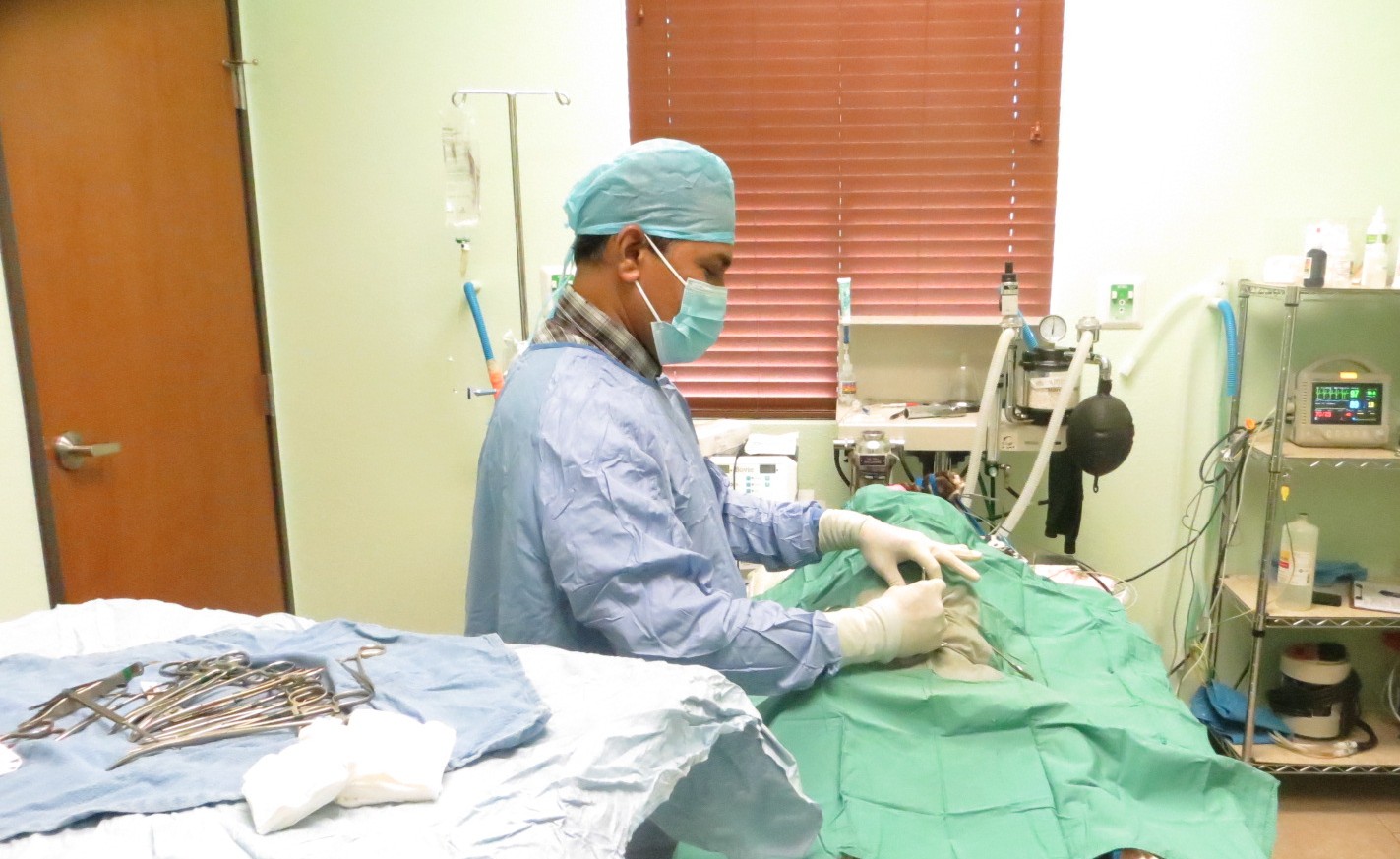
General Surgery in North Richland Hills
At Cornerstone Animal Hospital, our veterinarians serving North Richland Hills, Southlake, and Keller perform a comprehensive range of general surgical procedures for dogs, cats, and some exotic and pocket pets.
These procedures include, but are not limited to:
- Spaying and Neutering
- Tumor (mass) and growth removals
- Biopsies of skin, bone, and internal organs
- Oral surgeries for masses (tumors) and teeth
- Declawing cats and dewclaw removal in puppies
- Tail docking
- Limb amputation (in unsalvageable cases)
- Laceration and wound repair
- Urinary bladder surgery (cystotomy) and bladder or urethral stone removal (urethrotomy)
- Eye surgeries including eyelid repair for entropion and ectropion, and cherry eye correction
- Ear surgeries including hematoma repair, ear canal surgeries for chronic infections, and others
- Planned Cesarean sections
- Hernia repair
- Mammary gland removal (mastectomy)
- Prophylactic gastropexy (stomach tacking in large breed dogs to prevent twisted stomach), among others
Emergency Surgery
We also perform emergency surgical procedures, including:
- Foreign body removal
- Abdominal exploratory surgery (for suspected foreign bodies or tumors)
- Cesarean section
- Pyometra (uterine infection) surgery
- Splenectomy (spleen removal for tumors or other conditions)
- Gastric dilation and volvulus (GDV or twisted stomach) surgery
- Perineal urethrostomy (PU) for blocked male cats
- Tracheostomy
- Laceration repair
- Eyeball repair or removal (for prolapsed eyes)
- Other emergency surgical procedures
Anesthesia
At Cornerstone Animal Hospital, we prioritize the safety of your beloved pets just as your family doctor does for you. We tailor anesthetic protocols to each patient’s species (from large dogs to pocket pets), age (young to senior), and health conditions (healthy or with heart, liver, or kidney concerns). Our use of modern anesthetic medications ensures a safe and comfortable experience for all patients.
Anesthesia Monitoring
Our experienced staff use advanced digital monitoring equipment to continuously track heart rate, respiration, oxygen saturation, blood pressure, body temperature, and other vital signs throughout the procedure. Placement of an intravenous (IV) catheter and administration of IV fluids are standard for any major anesthesia. While anesthesia carries some risk, the benefits generally outweigh these when procedures are necessary.
All patients receive an IV catheter for fluid administration during anesthesia to maintain hydration. Our clinic is equipped with state-of-the-art monitoring devices including pulse oximetry (heart rate and oxygen saturation), electrocardiography (heart rhythm), respiratory monitoring, temperature, and blood pressure. This vigilant monitoring helps ensure your pet’s safety throughout anesthesia.
Does my pet need pre-anesthetic blood work?
We strongly recommend pre-anesthetic blood tests for all patients to assess organ function, clotting ability, and blood cell counts. Combined with a physical exam, this testing helps us evaluate anesthetic and surgical risks. Many conditions that could affect anesthesia safety may not show up on physical exam alone but can be detected through blood work.
Pain Management
We understand that surgery can cause pain, so we use advanced pain management protocols with medications before and after procedures to keep your pet comfortable. We also provide loving care, including phone updates for pet parents, cozy blankets, and lots of attention to make the experience as gentle as possible.
For more information about pet surgery, please don’t hesitate to contact us today at (817) 514-8387.
